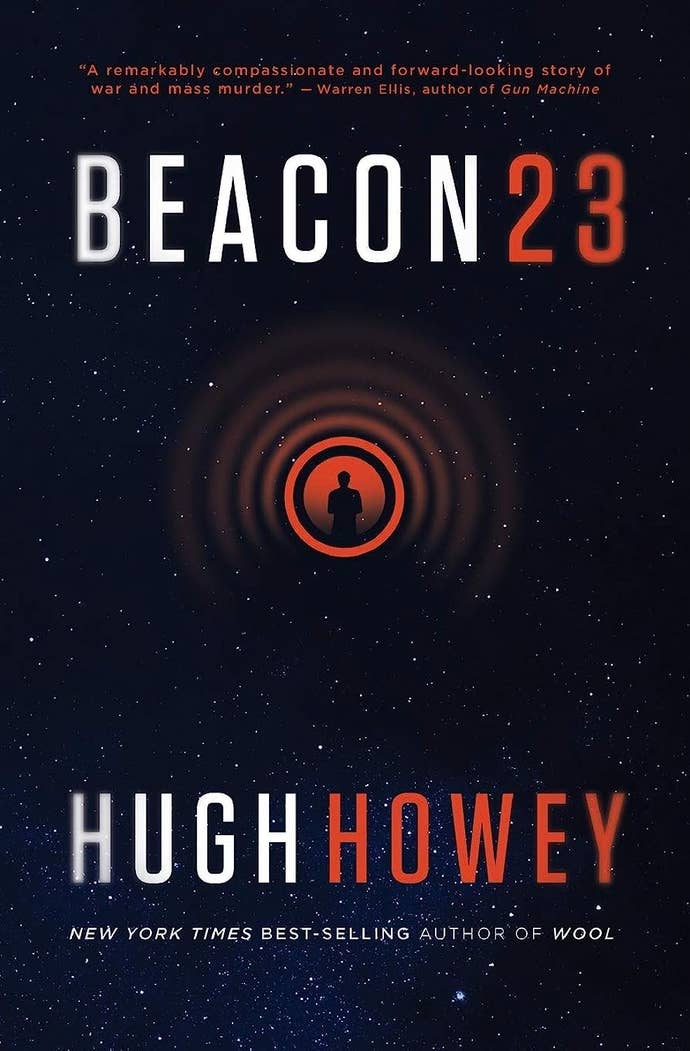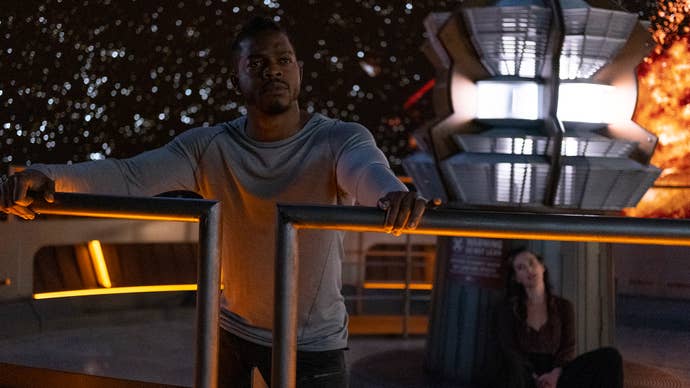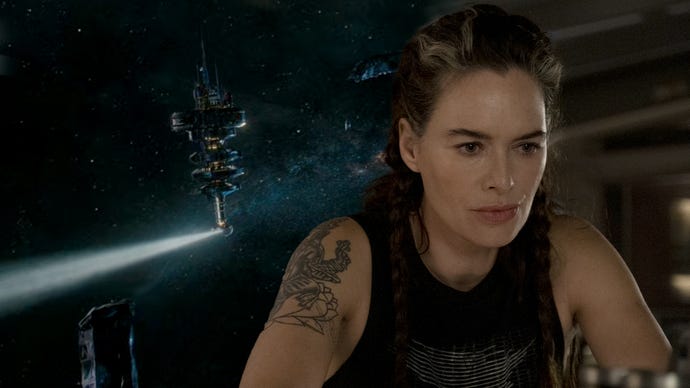Game of Thrones star Lena Headey makes a triumphant return to genre TV
Beacon 23 redefines the bottle episode as a stage for immense creativity.
Huge advances in CGI have, in theory, unlocked boundless creative freedom for scifi and fantasy shows – if a writer can imagine it you can get it on screen. Though,in practice, that potential has been tempered by late stage capitalism and its propensity to devalue everything that doesn’t throw a 600% return up to a bunch of vampiric ghouls who lack the basic human capacity for joy.
The upshot of this is that the genre TV boom of the nineties, encompassing everything from Star Trek to The X Files, is very much a thing of the past. The current economics of television rarely (never) account for large ensembles, 26 episodes per season, and an art budget that can stretch to more than one set. Hugh Howey’s acclaimed short-story collection Beacon 23, then, must seem like a gift from heaven for the producers of its MGM+ adaptation.
This is the story of a space lighthouse and its various keepers, whose tenures span a couple of centuries and are intertwined in a number of ways. Primarily, we are concerned with the interplay between street-smart corporate saboteur Aster (Headey) and troubled soldier Halan (played with deft versatility by Homecoming’s Stephan James). The pair’s motivations and reasons for being on Beacon 23 in the first place are all wrapped up in this show’s neatly unravelling mystery box, which batters along at such a healthy pace that in the space of each of the first three 50 minute episodes, your impression of them and knowledge of how they fit into this universe changes vastly.

For a science fiction show set entirely in a single location, consisting of several circular decks wrapped around a spiral staircase (imagine one of those converted water tower Airbnbs but with loads of blinky control panels and a sinister AI), it conjures an intriguing vision of an interstellar future for mankind, and in a way that doesn’t rely on heavy exposition dumps. Hints are dropped as to the state of the wider universe in natural dialogue, perspectives refreshed every so often by visiting strangers (usually with complex but ultimately nefarious goals, naturally).
But in reducing the scope of grand science fiction TV down to what we would have considered a “bottle episode” in days past – entire episodes of Star Trek, for example, that were set almost entirely in one location as a cost saving measure – Beacon 23 leverages the thing that often makes those episodes fan favourites: the performances.

Science fiction generally isn’t awash with actor’s parts. That’s not to say that it’s full of bad acting, quite the opposite. But there’s a reason why genre alumni often retreat to the stage when the cameras are off: theatre acting is a much more creative pursuit. Good actors can captivate a full house with just a spotlight and an empty chair. Stage productions are far more reliant on the skills of the performer than the “stand here, say this, do it again” sort of acting that TV and film requires.
Beacon 23 is almost a hybrid of TV and theatre: hugely reliant on the craft of acting to keep the viewer gripped through its drip-fed mystery and world building. To ensure that the rewards for accepting the frankly daft conceit of a space lighthouse are succulent enough to buy it wholesale. Lena Headey and Stephan James work wonderfully as leads, with their characters’ fundamental mistrust of each other underpinned by any-port-in-a-storm tenderness and a frail alignment of interests that could, you suspect, collapse at any moment.
Deep Space Nine showrunner Ira Steven Behr serves as co-producer and co-writer on this show, making Beacon 23 his second TV series concerning a remote space station. It’s interesting to me that much of the criticisms levied at DS9 are a lot more applicable to Beacon 23, i.e. they don’t go anywhere, there’s too much talking. But where DS9 is proved to have been massively ahead of its time, being a bingeable, arc-driven show with a diverse cast and outwardly progressive politics, Beacon 23 is a show very much steeped in the Now. It reflects our current insecurities about artificial intelligence, dwindling planetary resources, and the destabilising effect of colonisation, in a format necessitated by the current state of streaming television (in that it’s largely unsustainable unless you’re making cheap factual or lifestyle “content”).
It’s by no means perfect, but if you’re in the market for a smart new sci-fi show in which Cersei Lannister is reincarnated as a grungy Mancunian space lesbian and pitted in a battle of wits against a super soldier and a petulant AI, get on this.



